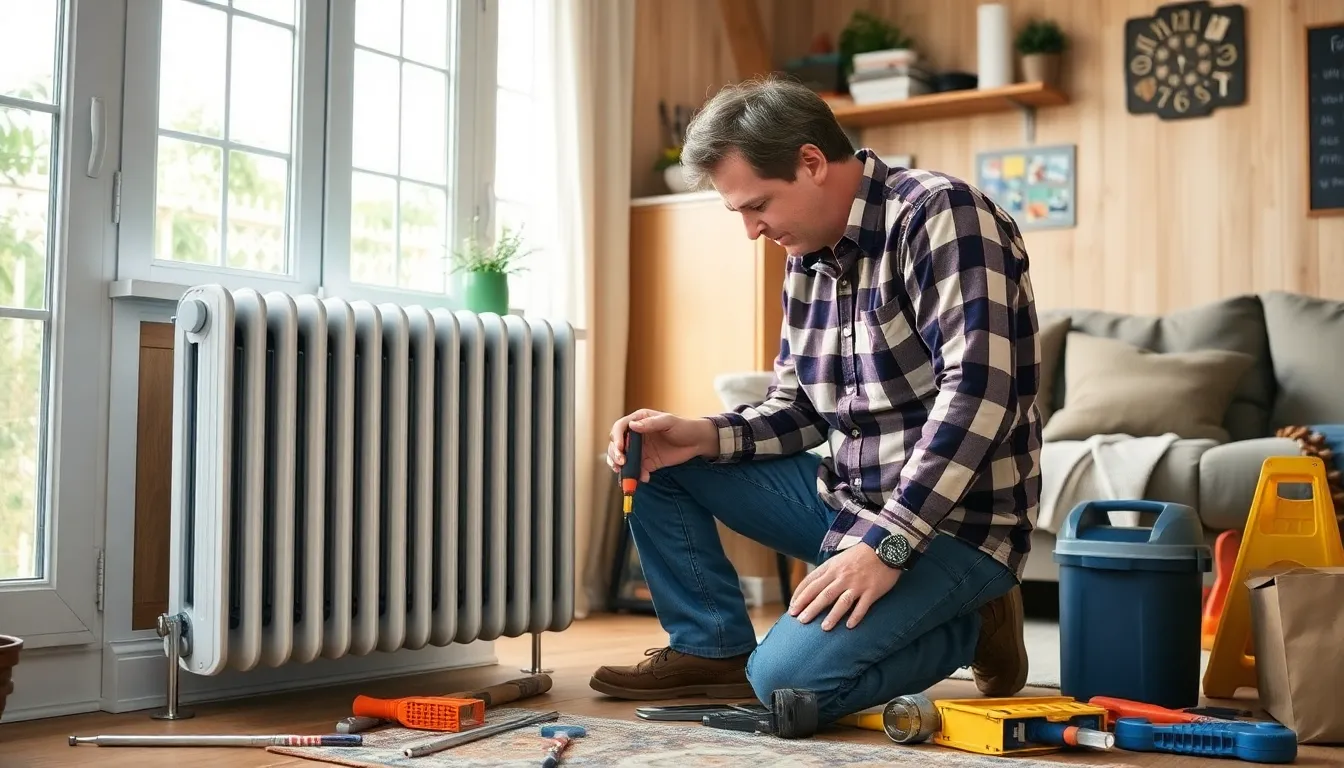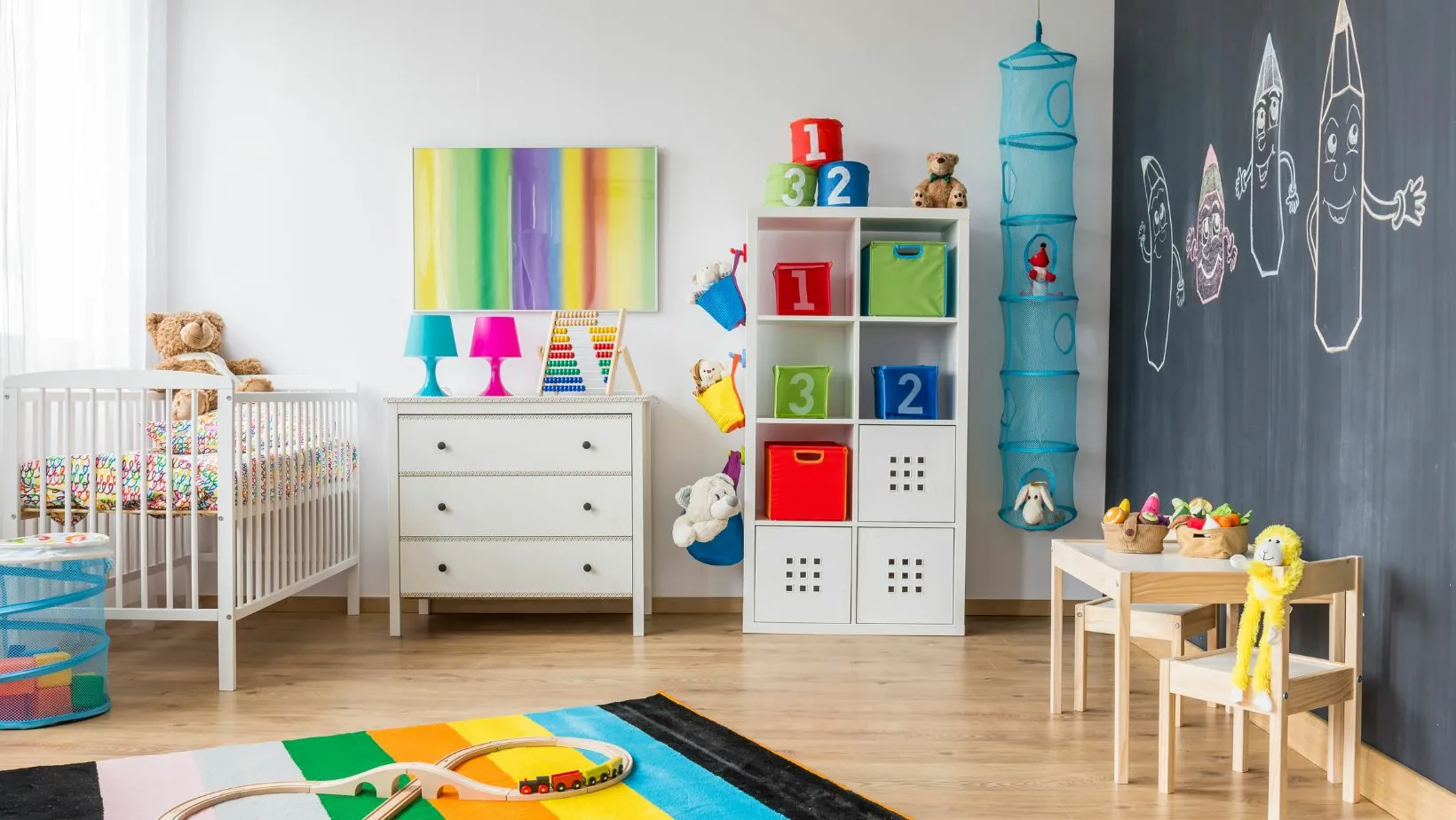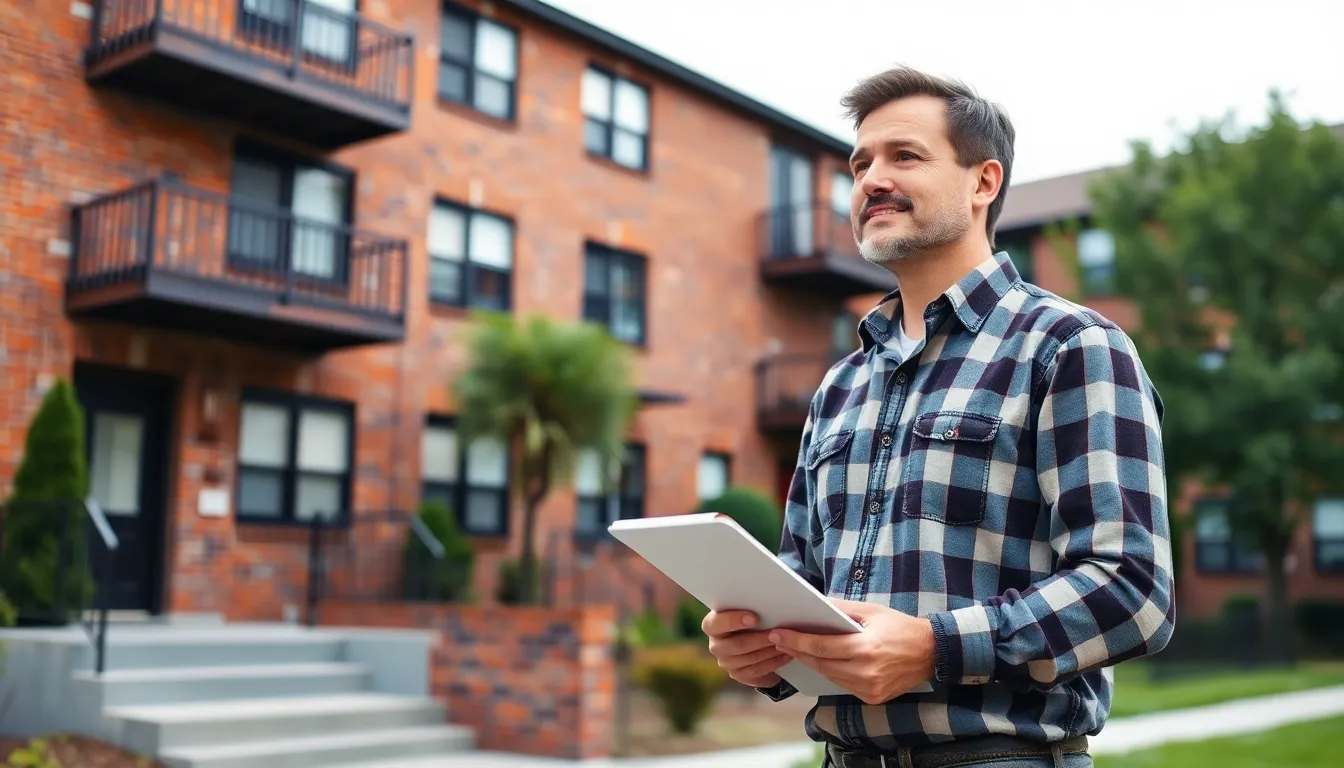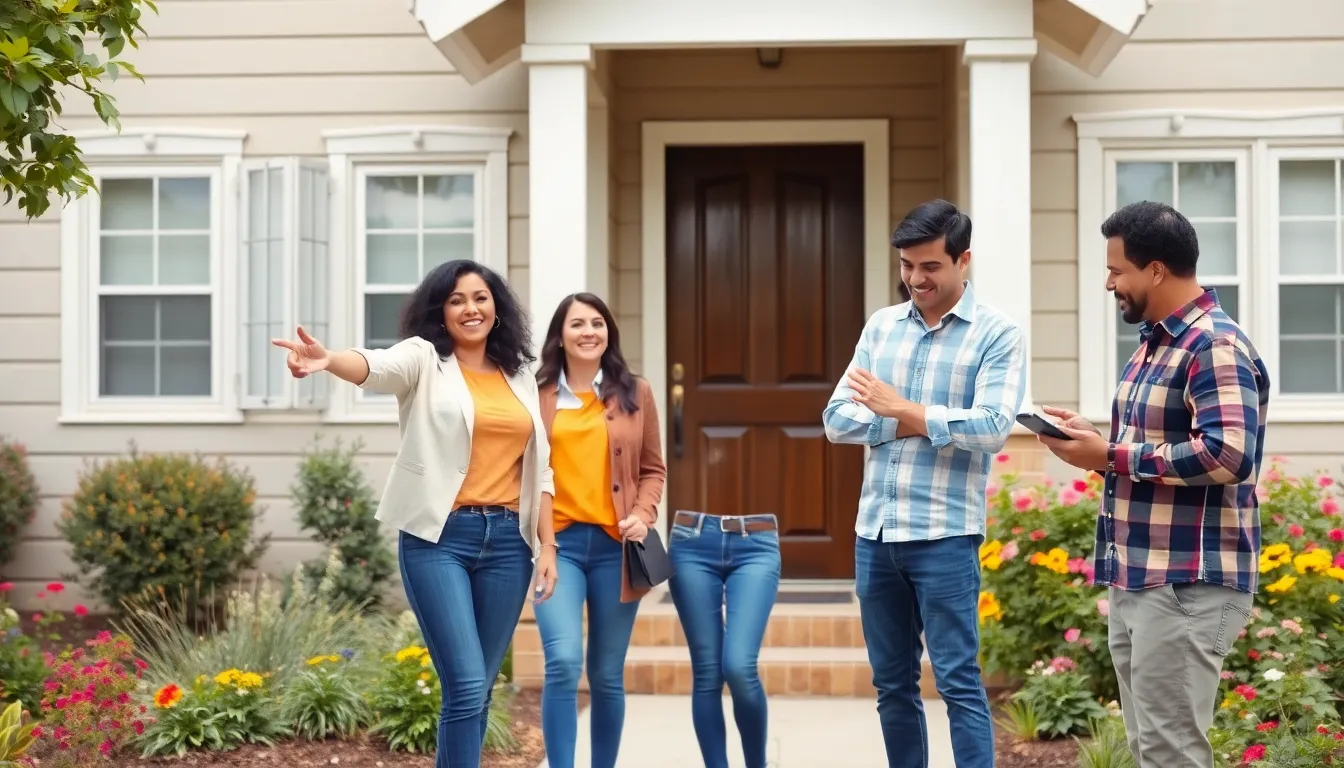Table of Contents
ToggleBeing a landlord comes with a unique set of responsibilities, and maintenance duties top the list. It’s not just about collecting rent and hoping for the best; it’s about ensuring that the properties remain safe and comfortable. Picture this: a tenant calls in a panic because the heating’s gone on vacation during winter. Suddenly, the landlord’s superhero cape is needed to save the day!
Understanding Landlord Maintenance Duties
Landlords hold significant responsibilities in maintaining their properties. Ensuring safety and comfort for tenants remains a top priority.
Legal Responsibilities
Landlords must comply with local health and safety codes. This includes ensuring homes meet basic safety standards, such as functioning smoke detectors and solid electrical systems. Tenants deserve a safe living environment, so landlords must address issues like leaks and pest infestations promptly. Regulations vary by state, and landlords must stay informed to avoid legal repercussions. Some areas also require regular inspections, making adherence to these laws essential for compliance.
Common Maintenance Tasks
Common maintenance tasks include regular inspections, addressing repairs, and managing property upkeep. Landlords often handle plumbing issues like leaky faucets and clogged drains quickly. Heating systems require seasonal checks to ensure proper function throughout colder months. Landscaping maintenance keeps exteriors appealing and can enhance property value. Timely responses to tenant requests can foster positive landlord-tenant relationships and retain valuable renters. These responsibilities contribute directly to tenant satisfaction and overall property management success.
Best Practices for Landlords

Landlords can enhance their property management effectiveness through best practices focused on inspection and repair. By prioritizing these duties, they ensure tenant satisfaction and compliance with regulations.
Regular Inspections
Conducting regular inspections of the property keeps issues from escalating. These inspections help identify potential maintenance problems, such as leaks or electrical issues. Scheduling these visits quarterly or biannually offers landlords a proactive approach. Documenting findings during inspections supports accountability and can guide future repairs. Engaging tenants by providing notice of inspections promotes transparency. An orderly system for tracking maintenance requests also arises from thorough inspections, aiding in timely resolution.
Prompt Repairs
Responding to repair requests promptly fosters positive landlord-tenant relationships. Tenants expect issues like plumbing leaks and heating failures to be resolved quickly. Addressing these concerns within 24 hours demonstrates a commitment to tenant well-being. Landlords gain trust when they prioritize maintenance, preventing minor problems from becoming costly repairs. Establishing a reliable network of contractors enhances repair efficiency. Maintaining effective communication with tenants throughout the repair process keeps them informed and satisfied.
Tenant Communication
Effective tenant communication plays a crucial role in property management. Landlords need to establish clear lines of communication to enhance tenant satisfaction.
Setting Expectations
Landlords should clearly outline expectations in the lease agreement. This includes maintenance response times, methods of communication, and procedures for reporting issues. Establishing these guidelines upfront sets a foundation for transparency. Regular reminders about tenants’ responsibilities, such as maintaining cleanliness or reporting problems quickly, create a mutual understanding. Additionally, landlords must communicate any changes to policies or procedures promptly.
Handling Requests
Timely handling of tenant requests is vital for maintaining strong relationships. Landlords ought to create a systematic approach for receiving and addressing requests effectively. Utilizing digital tools like maintenance apps can streamline this process. Each request should be acknowledged within 24 hours to reassure tenants that their concerns matter. Prioritizing urgent issues, such as heating failures or leaks, demonstrates commitment to their comfort. Follow-up communication after repairs ensures tenant satisfaction and builds trust.
Consequences of Neglecting Duties
Neglecting maintenance duties can lead to significant consequences for landlords.
Legal Ramifications
Landlords face legal repercussions when they fail to uphold maintenance responsibilities. Local health and safety laws mandate landlords to provide safe living conditions. Violations may result in fines, lawsuits, or even loss of the property. Regular inspections and timely repairs help mitigate these risks. Documentation of maintenance activities serves as valuable evidence in legal disputes. Ignoring repairs can also open the door for tenant claims of breach of warranty of habitability.
Tenant Relations
Poor maintenance directly impacts tenant relations. Tenants expect prompt responses to maintenance requests. A landlord’s failure to address issues can foster dissatisfaction and resentment. Frustrated tenants may choose to withhold rent or seek legal action. Effective communication about maintenance schedules enhances tenant trust. Moreover, positive tenant relationships often lead to longer lease agreements and better property care. Prioritizing maintenance needs shows a landlord’s commitment to tenant well-being.
Landlord maintenance duties are vital for ensuring tenant satisfaction and protecting property value. By prioritizing timely repairs and effective communication, landlords can foster positive relationships with tenants. Staying informed about local regulations is essential to avoid legal issues and maintain compliance.
Regular inspections and a proactive approach to maintenance not only enhance property conditions but also build trust with tenants. Ultimately, a landlord’s commitment to maintaining their property reflects their dedication to tenant well-being, leading to longer leases and a more successful property management experience.








